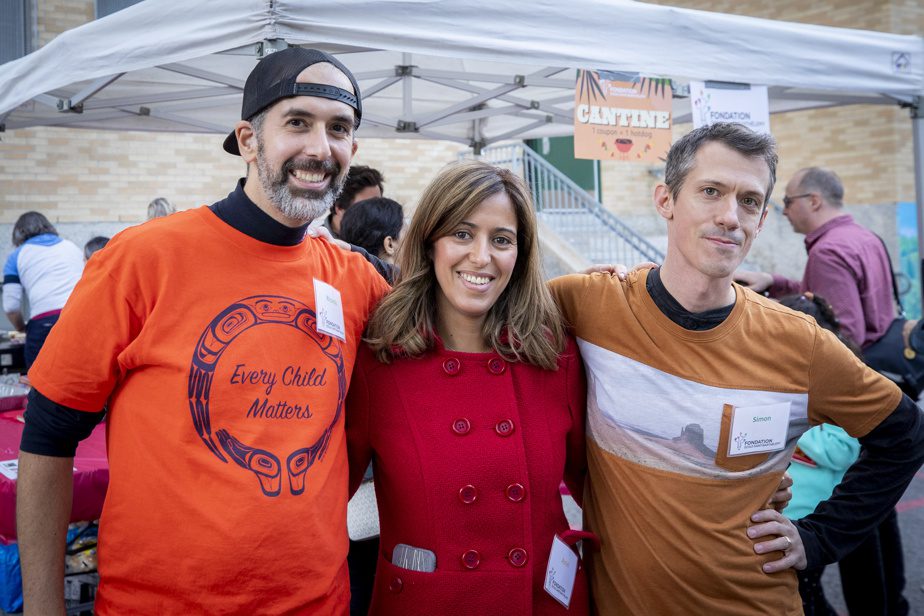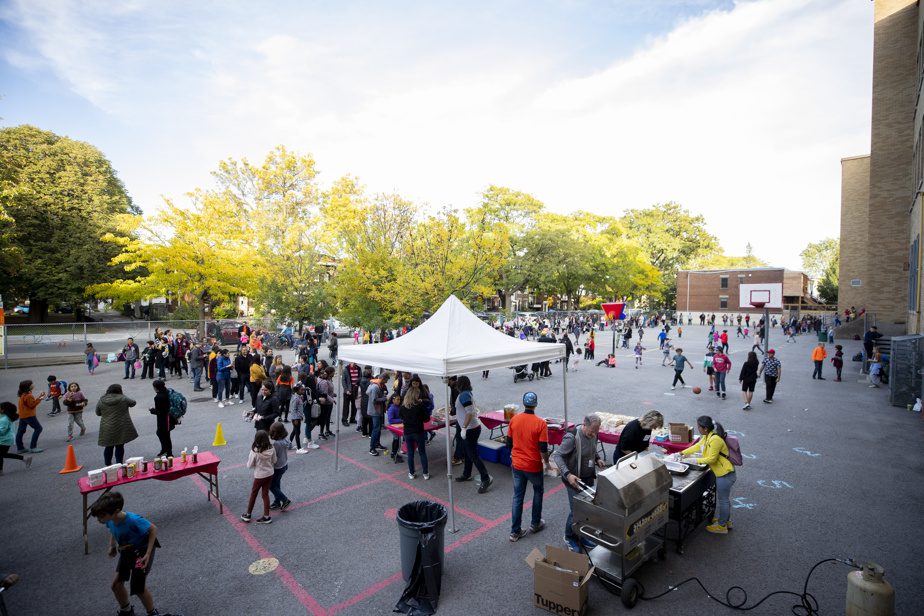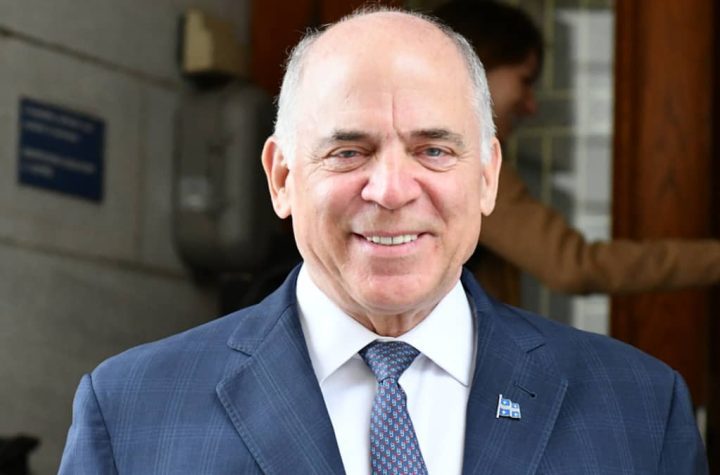
Their money is used to buy books, redevelop schoolyards or give scholarships: there are many foundations related to schools in Quebec. But defining their scope and the impact they have on educational inequality is difficult.
Some issue charitable receipts to the tune of $75,000 a year, while others struggle to raise a tenth of that amount. Foundations for schools – when there is one – are very uneven.
For example, the Saint-Barthélemy Elementary School Foundation raises up to $6,000 a year, which is used to improve students’ lives by purchasing books or financing occasional activities.

Photo by Dominic Gravel, The Press
Ricardo Santos, Amel Yaloui and Simon Leblond at a fundraising event for Saint-Barthélemy Primary School
“Schools have a certain budget to buy books, but it’s not enough,” said Ricardo Santos, president of the school’s foundation in Villeray, Montreal. “Last year, we bought the games so the teachers didn’t have to pay out of their pockets,” he continues.
To replenish the coffers, the foundation organizes several activities every year, including the sale of maple products. “We collect really small amounts, we don’t have donations from big companies,” said Mr. Santos said. Donations are $20 or $40.
Others juggle vastly different budgets. The St-Clement-Ouest Elementary School Foundation in Mount Royal is aiming to raise $50,000 this year, according to its website.
“It’s all fog”
The lack of statistics on these foundations is “very problematic,” says Sylvain Lefevre, a professor at the University of Quebec in Montreal (UQAM) and a researcher at Philab, a research network on philanthropy.
“I’ve never seen any statistics on what it represents in terms of funding in terms of school income or endowment: it’s a total fog,” laments Mr Lefevre.
These foundations “play very important roles,” Mr. Lefevre continues, which “raises the question of disparities between schools.”
The Ministry of Education does not know how many of these foundations are in its public network, any more than the Federation of School Service Centers or the Quebec Federation of School Directors.
So you have to turn to the Canada Revenue Agency, where they are registered, but there are hundreds of Quebec foundations with a “school” in their name, dance or entrepreneurial schools as well as public schools and private ones.
For the school, the money is used to buy musical instruments beyond the recorder. Elsewhere, it is realization of outside class, payment of school fees for poor students.
Among the projects it wants to fund this year, the Saint-Clément Primary School Foundation lists on its website: “Special educators, to support healthy conflict resolution and students at risk or adaptive or learning difficulties.
Can schools hire professionals with money from the foundation? At Marguerite-Borgeoys School Service Center (CSSMB), we suggest the legal framework governing boards must follow before accepting donations.
However, in some places, foundations are run by parents or directors who also sit on a governing board that is responsible for deciding whether a donation is accepted or not. Press.
“Public funding is not enough”
Schools, parents and foundations “try to do better,” says Professor Sylvain Lefevre.
The professor recalls that foundations solicit money from parents and their administrators are often people with too much time or “address books to assemble.”
As soon as we take a step back, we realize that it performs a very problematic collective function in terms of inequality.
Sylvain Lefebvre is a professor at the University of Quebec in Montreal and a researcher at Philab, a research network on philanthropy.
What’s more, “there’s always public money behind philanthropy through tax incentives,” adds the professor.
On the website of the International School of Montreal (which is part of the Montreal School Services Centre), it is explained that the foundation exists because “public funds [l’]The school is not enough to meet all the needs of our children.”
Genevieve Perron, treasurer of the International School of Montreal Foundation, which we raise about $10,000 a year, explains that it’s not a question of “replacing the school’s service center.”
“We want to do what our foundation wants to do because there are many levels of deficiencies, but we can’t because the service center is preventing us from doing it,” Ms.me Peron.
A few years ago, the foundation wanted to restore the student’s room “under repair,” but it was impossible to do so under the rules set by the school’s service center.

Photo by Dominic Gravel, The Press
Many people came to support the Saint-Barthélemy school.
At the foundation of Saint-Barthélemy Primary School, we also say that our mission is not to compensate for the failures of public schools.
However, last year we considered raising funds to replace the century-old school’s “rather obsolete” ventilation system, an idea that was quickly shelved. “The budget was astronomical,” recalls Ricardo Santos.
Foundations parallel to schools raise the question of state withdrawal, says Sylvain Lefevre.
“We have schools that make money through tinkering, from parents, from two or three companies. Aren’t we doing the dynamic that should be acceptable? Parents also ask themselves the question: Why are we doing this? ” explains the professor.
At the foundation of the Saint-Barthélemy school, if we help better equip one class a year, the reality is “it’s just one class out of 34”.
“We know there are passionate teachers who don’t hesitate to reach into their pockets to help students and we intervene to help them with their crying needs. This tells me about the public school: we need to help the teachers and give them better support,” concluded Amel Yaloui, vice president of the foundation.







